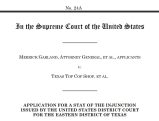
On September 18, 2023, the U.S. Department of the Treasury's Financial Crimes Enforcement Network (FinCEN) released a Small Entity Compliance Guide for businesses. This essential guide details the new reporting requirements for corporations and LLCs, set to commence in 2024. Dive deep to understand the implications and prepare your entity for seamless compliance.
by Zach Javdan
September 19, 2023
In the ever-evolving landscape of business regulations, staying informed is not just a matter of compliance—it’s a strategic necessity. For entrepreneurs and businesses venturing into the realms of LLCs and corporations, understanding the intricacies of financial regulations can be a daunting task.
Enter the Small Entity Compliance Guide, a recent release by the U.S. Department of the Treasury’s Financial Crimes Enforcement Network (FinCEN). This guide, aimed at simplifying the complexities of beneficial ownership reporting, is a testament to the government’s commitment to transparency and accountability in the business sector.
The reporting requirements apply to domestic and foreign business entities that are formed or registered to do business in the U.S., including LLCs and corporations. The guide is designed to help businesses comply with these requirements by providing clear and concise guidance.
The Corporate Transparency Act (CTA) had already set the stage for transformative changes in the way businesses report their ownership structures. With the introduction of FinCEN’s Small Entity
Compliance Guide, the nuances of these reporting requirements are further clarified, offering businesses a clearer path to compliance. Whether you’re in the initial stages of forming an LLC or have an established corporation, this guide is poised to be an invaluable resource.
For those who have been closely following the developments around the CTA on platforms like LawInc, the release of this guide is a significant milestone. It not only offers clarity but also underscores the importance of beneficial ownership information in the broader context of financial transparency and crime prevention.
Background on the Corporate Transparency Act (CTA)
The Corporate Transparency Act (CTA) stands as a monumental piece of legislation in the realm of business regulations. Enacted as a part of the National Defense Authorization Act on January 1, 2021, the CTA was designed with a clear objective: to shed light on the beneficial ownership structures of businesses, thereby promoting transparency and accountability. This act is not just a regulatory requirement but a strategic tool aimed at combating illicit activities such as money laundering, terrorism financing, and other forms of financial misconduct.
The significance of the CTA cannot be understated. It represents one of the most impactful changes to federal business regulations since the U.S. Securities Laws of the 1930s. At its core, the CTA mandates that a vast number of U.S. businesses, especially those structured as LLCs and corporations, report their beneficial ownership details to the Financial Crimes Enforcement Network (FinCEN). This reporting requirement is set to commence in 2024, marking a new era of business transparency in the U.S.
For those who have been tracking the evolution of the CTA and its implications, LawInc has been at the forefront, offering insights and guidance. From understanding the penalties associated with the CTA to delving deep into the historical context of business ownership reporting rules, LawInc provides a comprehensive resource for businesses and entrepreneurs. For a more detailed exploration of the CTA and its nuances, readers are encouraged to peruse the extensive coverage available on LawInc.

Interesting Fact: The U.S. just had a 6.2% surge in business applications, with a total of 465,906 applications,
Key Highlights from FinCEN’s Small Entity Compliance Guide
The guide, recently unveiled by the Financial Crimes Enforcement Network (FinCEN), serves as a map for businesses navigating the intricate waters of beneficial ownership reporting. Here are the pivotal takeaways:
Entities Covered: The guide emphasizes that certain U.S. businesses, predominantly LLCs and corporations, fall under the reporting umbrella. This includes entities formed under state laws or registered to conduct business in the U.S.
Purpose of Reporting: The primary objective behind this reporting mandate is to foster transparency, deter illicit financial activities, and fortify the U.S. financial system against potential vulnerabilities.
Deciphering ‘Beneficial Owner’: The term ‘beneficial owner’ has often been a subject of ambiguity. FinCEN’s guide offers clarity, defining a beneficial owner as an individual who exercises substantial control over an entity or holds a significant ownership interest (typically 25% or more). This definition is pivotal as it determines who needs to be reported.
Reporting Timelines and Deadlines: The clock is ticking for businesses, with the reporting requirements set to kick off in 2024. Entities formed after this date will need to report at the time of formation or registration. For those already in existence, a one-year window is provided to ensure compliance.
Ramifications for LLCs and Corporations Following the Small Entity Compliance Guide
Impact on Formation Procedures: The introduction of the guide has ushered in a new era for the establishment of LLCs and corporations. Entities must now incorporate additional steps in their formation process, ensuring that beneficial ownership details are accurately captured and reported. This not only modifies the traditional setup procedures but also mandates a heightened awareness of the underlying ownership structures.
Consequences of Non-Adherence: Non-compliance with the guidelines can lead to severe repercussions. Entities that fail to adhere to the reporting requirements might face substantial penalties, both financial and legal. Specifically, Failure to comply with the beneficial ownership reporting requirements can result in civil fines of up to $500 per day, up to a maximum of $10,000, and criminal penalties of up to two years in prison.
The Upside of Adherence: While the new guidelines might seem stringent, they come with their set of advantages. By complying, LLCs and corporations can foster a sense of trust among stakeholders, investors, and the broader business community. Moreover, adherence ensures that entities steer clear of legal entanglements, safeguarding their reputation and operational continuity. In the long run, this proactive approach to transparency can serve as a cornerstone for sustainable business growth and credibility.

Interesting Fact: In 2020, 4.4M of 8.0M U.S. establishments had 1-4 employees. Source
Comparison with Previous Guidelines
The Beneficial Ownership Information Reporting Requirements Guide, released in September 2023, offers a comprehensive understanding of the new reporting mandates. When juxtaposed with prior guidelines, several distinctions and enhancements become evident:
Introduction of the Guide: The 2023 version of the guide is labeled as “Version 1.0,” suggesting that it’s the inaugural edition of this comprehensive compliance guide. This implies that the guidelines presented are a fresh initiative by FinCEN to aid entities in understanding and complying with the reporting requirements.
Emphasis on Reporting Timelines: The guide underscores that the reporting requirements will commence from January 1, 2024. No reports will be entertained before this date, ensuring entities are aware of when they need to start their reporting processes.
Interactive Features: To facilitate comprehension, the guide incorporates interactive flowcharts, checklists, and other aids. These tools are designed to assist companies in determining their reporting obligations and the steps to fulfill them.
Updates and Revisions: The guide is not static. FinCEN has indicated that it may periodically update the guide to provide clarity or to include new information. This dynamic nature ensures that entities have access to the most recent and relevant information.
Specific Exemptions and Criteria: The guide provides detailed criteria for specific exemptions, such as those related to the Securities Exchange Act and the Investment Advisers Act. This granularity helps entities understand if they qualify for any exemptions and the conditions they need to meet.
Addressing Changes and Inaccuracies: The guide dedicates sections to guide entities on what actions to take if previously reported information changes or if inaccuracies are discovered in a report. This is crucial for ensuring that the data reported to FinCEN remains accurate and up-to-date.
In essence, the 2023 guide serves as a comprehensive resource, offering clarity, interactive tools, and detailed explanations to ensure entities can navigate the beneficial ownership reporting landscape with confidence.
Practical Steps for Entrepreneurs and Businesses
Navigating the complexities of the Beneficial Ownership Information Reporting Requirements can be daunting for businesses, especially for budding entrepreneurs. To simplify the process, here’s a step-by-step breakdown and some tips to ensure long-term compliance:
Understand the Scope: Familiarize yourself with the guide’s definitions, especially terms like “beneficial owner” and “reporting company.” Determine if your business falls under the entities required to report. This typically includes certain U.S. businesses, predominantly LLCs and corporations.
Identify Beneficial Owners: Assess the ownership structure of your entity. Identify individuals who either have substantial control over the entity or hold a significant ownership interest (typically 25% or more).
Gather Necessary Information: Collect full legal names, addresses, date of birth, and an identification number (like a passport or driver’s license number) for each beneficial owner. Ensure the information is accurate and up-to-date.
Reporting: For entities formed after the guide’s effective date, report beneficial ownership information at the time of formation or registration. Existing entities should report within the stipulated one-year window.
Stay Updated: Regularly review the guide and any updates from FinCEN. Regulations can evolve, and it’s crucial to stay informed.
Maintain Records: Keep a detailed record of all beneficial ownership information. Store records securely, ensuring data privacy and protection.

Don’t Forget: The CTA goes into effect on January 1, 2024.
Tips for Long-Term Compliance:
Regular Audits: Periodically audit your beneficial ownership records to ensure accuracy and completeness.
Training: Ensure that key personnel, especially those in compliance and legal departments, are trained and familiar with the guide’s requirements.
Open Communication: Foster a culture of open communication. Encourage team members to report any changes in beneficial ownership or any other relevant information.
Leverage Technology: Consider using compliance software or tools that can help automate the reporting process and maintain records efficiently.
Seek Expertise: When in doubt, consult with legal or compliance experts familiar with FinCEN regulations. Their insights can be invaluable in navigating complex scenarios.
By following these steps and tips, entrepreneurs and businesses can align with the guide’s requirements, ensuring transparency, fostering trust, and avoiding potential legal complications.
Conclusion
In the ever-evolving landscape of financial regulations, the Beneficial Ownership Information Reporting Requirements introduced by FinCEN stand as a testament to the importance of transparency and accountability in the business realm. As we navigate these new waters, a few key takeaways emerge:
Staying Informed is Paramount: The world of finance and business is dynamic. Regulations, guidelines, and requirements can change, sometimes with little notice. It’s not just about understanding the current rules but also about keeping an ear to the ground for any updates or modifications. By staying informed, businesses can ensure they’re always a step ahead, avoiding last-minute scrambles and potential non-compliance.
Proactivity Over Reactivity: It’s easy to adopt a ‘wait and see’ approach, especially when faced with complex regulations. However, such an approach can lead to missed deadlines, incomplete reporting, and potential legal complications. Instead, businesses should aim to be proactive—understanding the requirements, setting up processes, and ensuring timely reporting.
One Size Doesn’t Fit All: While the guide provides a comprehensive overview, every business is unique. What applies to one might not necessarily apply to another. This is where the nuances come in, and understanding these nuances is crucial.
Seek Professional Advice: Given the intricacies involved, it’s always a wise decision to seek professional advice. Legal and compliance experts can provide tailored guidance, ensuring that businesses not only comply with the letter of the law but also its spirit. They can navigate the gray areas, provide clarity on ambiguous points, and offer strategies for efficient and effective compliance.
In conclusion, the introduction of the Beneficial Ownership Information Reporting Requirements is not just about adding another item to the compliance checklist. It’s about fostering a culture of transparency, building trust, and ensuring that the U.S. financial system remains robust and resilient. As businesses, the onus is on us to rise to the occasion, stay informed, and ensure that we’re always on the right side of the law.
LawInc is Here to Assist
Dive Deeper with LawInc: The world of business regulations and compliance is vast, and staying updated is crucial for success. We at LawInc are committed to providing you with the latest insights, guidelines, and expert opinions. If you found this article on the Beneficial Ownership Information Reporting Requirements enlightening, we invite you to explore our other articles. From in-depth analyses to practical advice, our content is designed to empower and inform.
Personalized Guidance Awaits: Every business is unique, and so are its challenges. While our articles provide a broad overview, there’s nothing like personalized advice tailored to your specific needs. If you have questions, concerns, or simply wish to understand how these regulations impact your business directly, our team of experts is here to help. Reach out to us for a one-on-one consultation, and let’s navigate the complexities together.
Stay Proactive, Stay Informed: In the dynamic world of business, knowledge is power. Equip yourself with the right information, seek expert advice when in doubt, and always stay a step ahead. LawInc is here to be your trusted partner on this journey. Connect with us today, and let’s build a transparent, compliant, and successful future together.










